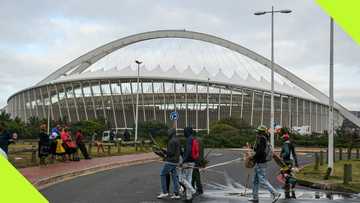Nelson Mandela Bay Rainfall ‘Significant Event’ As 3,000 Displaced in Windy City
- Heavy rainfall across Gqeberha and Kariega in Nelson Mandela Bay caused massive water and electricity outages from Sunday
- The weather event, causing flash floods that led to road closures in parts of the metro, resulted in damage to essential infrastructure
- Speaking to Briefly News, retired SA Weather Service (SAWS) consultant Garth Sampson described the impact of the downpour
- Gift of the Givers Project Manager Ali Sablay told Briefly News over 3,000 people were evacuated and 23 community halls activated
Do not miss an opportunity to join FREE webinar by Briefly News. AI in Action: Practical Skills for Creative Professionals. Register here: https://corp.briefly.co.za/ai-in-action-workshop
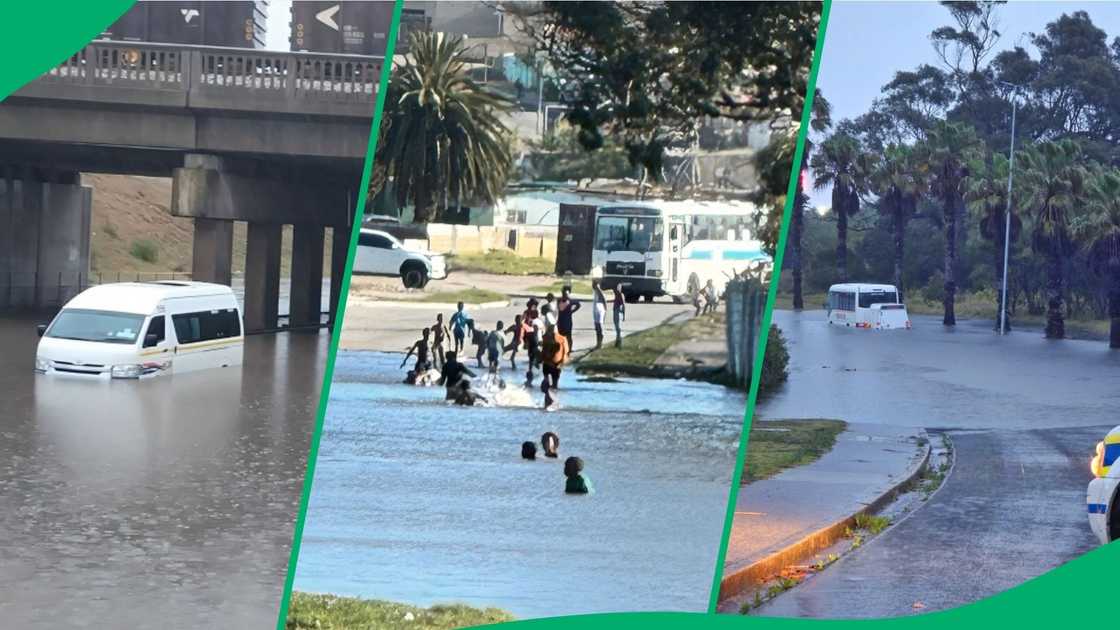
Source: Original
GQEBERHA — A heavy downpour battered Nelson Mandela Bay as flash floods wreaked havoc, causing week-long water and power disruptions from Sunday, 20 October 2024.
This saw thousands of residents, notably in township areas in Gqeberha and Kariega, evacuated from their homes and placed in shelters, with the humanitarian non-profit Gift of the Givers spearheading aid efforts.
Rainfall 'significant event' for the Bay
By Friday, 25 October, only three people had lost their lives in the weather disaster, according to municipal officials in the city.
PAY ATTENTION: Briefly News Needs Your Help! Take our Survey Now and See Improvements at Briefly.co.za Tomorrow
Gqeberha-based retired SA Weather Service (SAWS) consultant Garth Sampson, known as the Weather Guru — now operating WG and Associates, a private weather advisory firm — gave Briefly News a blow-by-blow synopsis of the weather event as it began to unravel at the top of the week.
"As of 12pm on Tuesday, Nelson Mandela Bay had 190mm of rain in the suburbs, fast-approaching 200mm. This made it quite a significant event, not seen in a few years. The last time there was good rainfall on this scale was in 2012, one of the wettest non-flood years on record," said Sampson.
"Numerous parts of the city have been flooded — yes, due to the significant rain. But most of it was infrastructure-related, with poor drainage [resulting from] stormwater drains that have not been maintained.
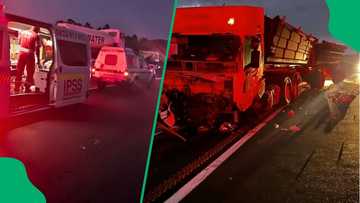
Read also
Dashcam shows car with 8 KZN youth killed in deadly N2 Mandeni crash swerving into wrong lane
"There was constant heavy rainfall, starting at around 8am on Monday and pouring until it reached 190mm. This was expected to continue throughout [Tuesday afternoon] before hitting the 200mm mark."
Sampson said the combined dam levels had reached 78 per cent earlier in the week, with 15mm of rain in places in the Langkloof main catchment area.
He said this would cause rivers to swell.
"I would not be surprised to see the combined dam levels topping the 80 per cent mark by the weekend when more rain is expected," said Sampson.
"This will [affect] low-lying areas such as Swartkops, Kleinskool, Motherwell, Soweto-On-Sea, Despatch, and similar areas.
"After more flooding [on Tuesday] due to the ground's saturation, it [was expected] to clear from Wednesday, with partly cloudy skies [expected] for the rest of the week [ahead of the expected weekend rainfall]."
On Wednesday, Gift of the Givers' Project Manager Ali Sablay highlighted the impact of the week-long disruptions, speaking to Briefly News.
Sably said 23 community halls had been set up as temporary shelters for about 3,200 people who were evacuated from their homes.
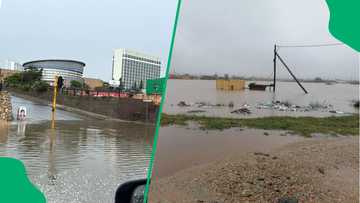
Read also
1 Tragically killed in Eastern Cape floods, person electrocuted while trying to escape rising water
"Our teams have been on the ground serving them hot meals daily and providing them with blankets, personal hygiene care items, baby care products, warm clothing and bottled water," he said.
"Additionally, two water tankers were deployed from Adelaide to provide the community with clean drinking water due to the damaged waterworks in KwaNobuhle."
By Wednesday, many parts of KwaZakhele, New Brighton, Motherwell, and Missionvale still grappled with an electricity outage. Gift of the Givers teams provided residents with non-perishables to ease the burden.
"Clean drinking water was a concern in those places, ensuring we stay on the ground to look after people in the shelter as they cannot cook while there is no power and the inside of their homes are drenched," said Sablay.
"We've been happy with the support of local disaster management teams, businesses and residents who came forward to donate goods."
On Friday, the municipality advised that multiple roads had begun to open and that repair work was being done at damaged substations.
It urged residents to avoid moving barricades to access still-closed roads as the metro began its recovery while working hand in hand with Eskom to restore the electricity supply in affected areas.
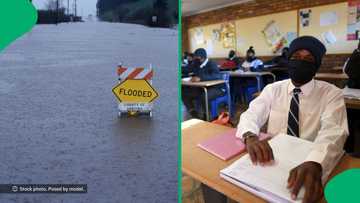
Read also
400 Eastern Cape matriculants unable to write National Senior Certificate exams because of storms
"Contractors are working around the clock to restore power in all areas. The week’s heavy rains complicated a situation exacerbated by faults, ageing infrastructure, and supply of material. The municipality is concerned about the impact of outages on residents and businesses and is doing everything possible to restore the supply," it said.
1 Killed trying to escape flash floods
In related news, Briefly News reported that one person died after being electrocuted while trying to escape floods in Nelson Mandela Bay.
Destructive floods in parts of the metro led to widespread damage to essential infrastructure, affecting the water and electricity supply.
PAY ATTENTION: Сheck out news that is picked exactly for YOU - click on “Recommended for you” and enjoy!
Source: Briefly News

